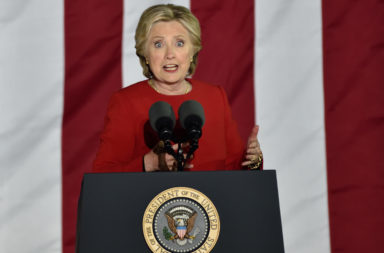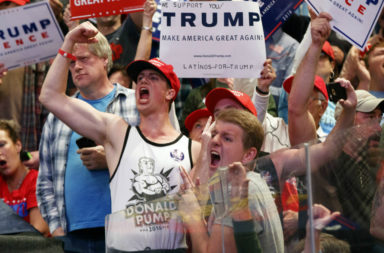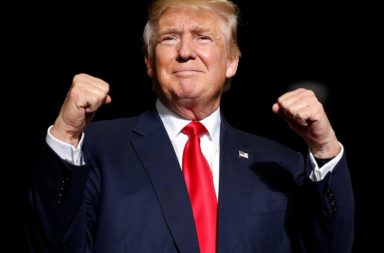If you think the American primary elections are entirely based on democracy, think again. According to interesting claims recently, it has been revealed that ‘Superdelegates’ amongst the Democrats could possibly use their power and clout to change the end result of supposedly democratic primary elections. What is this claim all about?
How does the Superdelegate system work?
To present a concise explanation, it is important to understand the role of delegates and superdelegates in the Democrat primary elections. At the national party convention, delegates have an important role to play, and their opinions could gain considerable importance. This is because delegates are elected from various geographical areas, to represent the voters from the corresponding areas, at the party’s convention. They then select candidates for the party’s nomination. A Superdelegate on the other hand, is an ‘unpledged delegate’ amongst these, who is free to support any candidate of his or her choice, irrespective of voters’ preferences in the primary elections. A Superdelegate is not democratically elected by voters.
Thus, there’s a significant difference between delegates who are democratically elected, and Superdelegates who are handpicked based on their political stature and expertise.
This could present an interesting challenge for Bernie Sanders, and could possibly support Hillary Clinton’s presidential victory. To understand how, here’s a lowdown on the interesting phenomenon:
Bernie Sanders emerged victorious in the New Hampshire primary election by 20 percentage points, but it seems like the delegates will largely support Hillary Clinton in the same. Sounds undemocratic? Well, it’s still legal. According to statistics:
85% of delegates amongst Democrats are bound to follow the popular vote in the primaries. However, the remaining 15%, comprising of Superdelegates, can support whomever they want to at the party convention. This is the event where the party nominates a candidate.
But could they really pose a threat to democracy?
According to a report, the Democratic delegate total is 4,763. It takes 2,382 of those to secure the nomination. And of the 4,763, 712 are Superdelegates- about 15% of the overall total. Former President Bill Clinton is also a Superdelegate – which also raises questions about the impartiality of Superdelegates’ choice.
Therefore, Superdelegates could become a cause for concern. Though Sanders defeated Clinton by a considerable margin in the New Hampshire primary, the delegates supporting them stand at 15 each -the same for both. This clearly highlights the disproportionate support that Hillary Clinton is received from the party establishment.
However, experts argue that the Superdelegates can hardly change the course of a democratic election, without causing a furore amongst American voters. According to Cenk Uygur of the online commentary program The Young Turks, though Superdelegates can apparently choose whoever they want- albeit in a possibly undemocratic way – they would never dare to go strongly against the democratically popular choice of the voters. He strongly said, “Superdelegate votes will not stand. Period.” He then explains his statement with reference to support for Clinton, “it is not a sign of strength; it is a sign of weakness, in this particular election, to say ‘all the politicians support me.’ Congratulations! People despise that, that’s why you lost 70 points in New Hampshire!’ Also, Uygur warns against Superdelegates using their political clout to interfere with democratic elections, saying that if they support Clinton even if Sanders manages to win the popular vote in the primary elections, then they will have “massive trouble on their head.” He suggests that the Democratic convention could become a “catastrophe” if the Superdelegates do not respect the results of the democratic vote.
In 2008, though the Superdelegates initially backed Hillary Clinton, they quickly changed their stance and supported Barack Obama, once he began sweeping victory across the United States. This clearly indicates that Superdelegates do not usually dare to go against popular public opinion, which puts their actual decision-making power in question. Then, if Superdelegates are indeed powerless in deciding the fate of elections, then Clinton should not flaunt the support she is receiving from Superdelegates, as any sort of victory. In reality, it doesn’t really mean much.
Why was the Superdelegate system launched?
The Superdelegate system was initially formed in 1982, in order to tackle the insecurity that party leaders felt, as they had no significant role to play once the primary and caucus system was launched in the late 1960s. The system was recommended by then governor of North Carolina – Jim Hunt. Prior to this system, it was simply the party leaders who chose the candidates – which wasn’t a democratic process either. According to John Iadarola of ThinkTank, the Superdelegate system is simply a convenient way for powerful party leaders to ensure that no ‘outsider’ or politically ‘unpopular’ candidate becomes the party nominee, by ensuring that a few chosen party stalwarts have a say in the nomination over and above American voters. In this case, he is referring to Bernie Sanders, who is increasingly becoming a threat to the Hillary Clinton- who is expected to reap the sweet fruits of nepotism.
In the cutthroat competition between Hillary Clinton and Bernie Sanders, the power wielded by Superdelegates could become an obstacle to true democracy. It is of utmost importance that party leaders do not tamper with the true choice and American voters. Both delegates and Superdelegates should only support and nominate the candidate who is genuinely the popular choice of the democracy.




